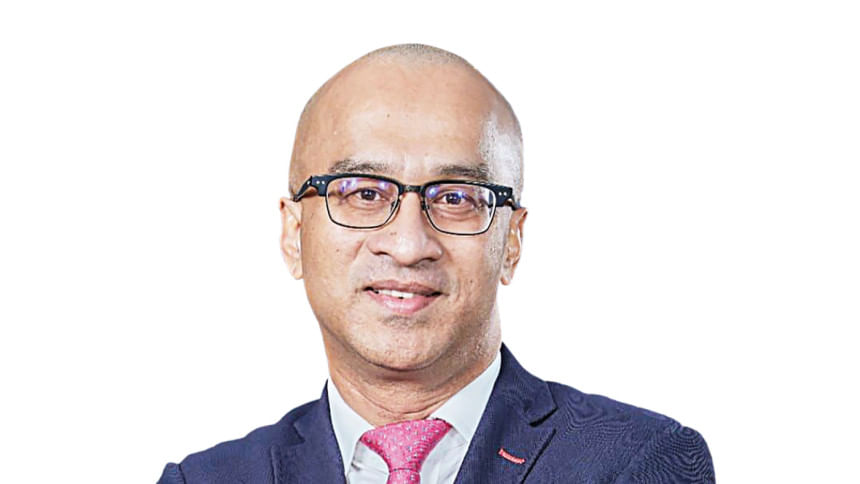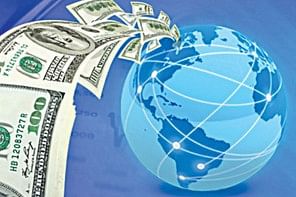Sustainability at the core of our strategy

Mashrur Arefin
Managing Director & CEO, City Bank
The Daily Star (TDS): How would you assess the current state of sustainable banking in Bangladesh?
Mashrur Arefin (MA): Over the past decade, Bangladesh's sustainable and green banking landscape has improved significantly, led by Bangladesh Bank's pioneering policies and clear mandates. The central bank has provided strong guidance on green and sustainable finance taxonomy, disbursement targets, Environmental and Social Risk Management (ESRM), and sustainability and climate-related disclosures—all of which have shaped the national sustainable finance framework.
Regulations requiring banks to allocate at least 5% of the previous year's net outstanding to green finance and 40% to broader sustainable finance, together with robust ESRM practices, have built strong momentum across the sector. Since 2021, the industry has steadily grown, channelling billions of taka into renewable energy, energy efficiency, green buildings, sustainable agriculture, and more. In 2024 alone, banks and NBFIs disbursed BDT 30,653 crore as Green Finance and BDT 459,483 crore as Sustainable Finance, compared to BDT 19,304 crore and 197,369 crore respectively in 2023.
Another major step has been banks beginning to measure their GHG emissions and, in line with Bangladesh Bank's guidelines, reporting sustainability and climate-related disclosures aligned with IFRS S1 and S2.
TDS: What sustainable financing/refinancing schemes does your bank offer, particularly for SMEs, women entrepreneurs, or other environmentally responsible enterprises?
MA: To support SMEs, women entrepreneurs, and environmentally responsible businesses, we help them access low-cost loans offered by Bangladesh Bank, as well as concessional financing for projects that are environment-friendly or that address climate resilience and disaster management. Through City Alo, City Bank's dedicated division for women entrepreneurs, we provide financial literacy programmes, capacity-building initiatives, and networking opportunities—alongside low-interest loans and access to refinance facilities. We also assist eligible clients in accessing three major refinance schemes from Bangladesh Bank.
City Bank offers a comprehensive range of sustainable and green financing products, fully aligned with Bangladesh Bank's Sustainable Finance Taxonomy. For us, sustainability is not an add-on—it is central to our business strategy. In 2024, 88% of our total loans went to sustainable sectors, with Green Finance accounting for 34% of total term loan disbursements.
TDS: What initiatives has your bank undertaken to promote sustainable banking, and what measures have you implemented to reduce your own carbon footprint?
MA: City Bank is proud to be the first Bangladeshi bank to join the UNEP FI–convened Net-Zero Banking Alliance (NZBA). Our Net Zero Emission Target Setting Disclosure sets out a clear roadmap for Bangladesh's transition to a low-carbon economy, with sector-specific emission reduction targets for 2030 and the ultimate goal of net-zero by 2050, in line with the Paris Agreement and NZBA commitments.
Recognising the importance of managing our carbon footprint, we have put in place structured initiatives to measure direct (Scope 1) and indirect (Scope 2 and 3) emissions, guided by global best practices. A dedicated internal team of Environmental & Social (E&S) specialists, engineers, and finance professionals leads the complex task of calculating, monitoring, and reporting our GHG emissions.
As a financial institution, our own operational footprint is relatively small. The bulk of our GHG emissions come from financed activities, which is why every loan proposal undergoes strict Environmental and Social Due Diligence under our ESRM policy. Beyond assessments, we actively engage clients through awareness and capacity-building programmes to encourage greener practices and align with Bangladesh's emission reduction goals.
TDS: What challenges has your bank encountered in adopting and promoting sustainable banking practices?
MA: Our sustainable banking journey has been rewarding but not without challenges. Awareness of green transformation is still limited, particularly outside corporate clients. Data gaps in financed emissions and sector performance, shortages of capacity in risk and technology appraisal, and a thin pipeline of bankable green projects (particularly in renewable energy and resilient infrastructure) remain hurdles. SMEs often struggle to present viable proposals, while concessional funds and climate finance fall short of demand. Balancing commercial viability with long-term environmental and social impact also requires deep client engagement and tailored financing.
Yet we see these challenges as opportunities for innovation. By building capacity, improving ESG data, strengthening partnerships, and working closely with clients, we are confident of scaling sustainable banking and contributing meaningfully to Bangladesh's green transition.
TDS: What are your bank's future plans to advance sustainable banking, and what support do you seek from the government?
MA: Our future plans, aligned with Bangladesh's NDCs, NAP, Renewable Energy Policy 2025, and global goals like the SDGs and Paris Agreement, focus on expanding green finance into renewable energy, energy efficiency, electric mobility, climate-resilient agriculture, and green housing. We will strengthen ESG risk management, build client capacity, use digital tools for impact monitoring, and further cut our own footprint through renewables, paperless banking, and better waste management.
We aim to expand concessional loans and launch products such as ESG-linked loans to reward emission-reducing businesses. Dedicated Sustainable Finance Help Desks, particularly in rural areas, will guide clients, boost inclusion, and channel funding into responsible projects. To accelerate progress, we seek government policy support, more concessional funding, and easier access to global climate finance through blended models and partnerships with the Green Climate Fund and multilateral banks.

 For all latest news, follow The Daily Star's Google News channel.
For all latest news, follow The Daily Star's Google News channel. 



Comments